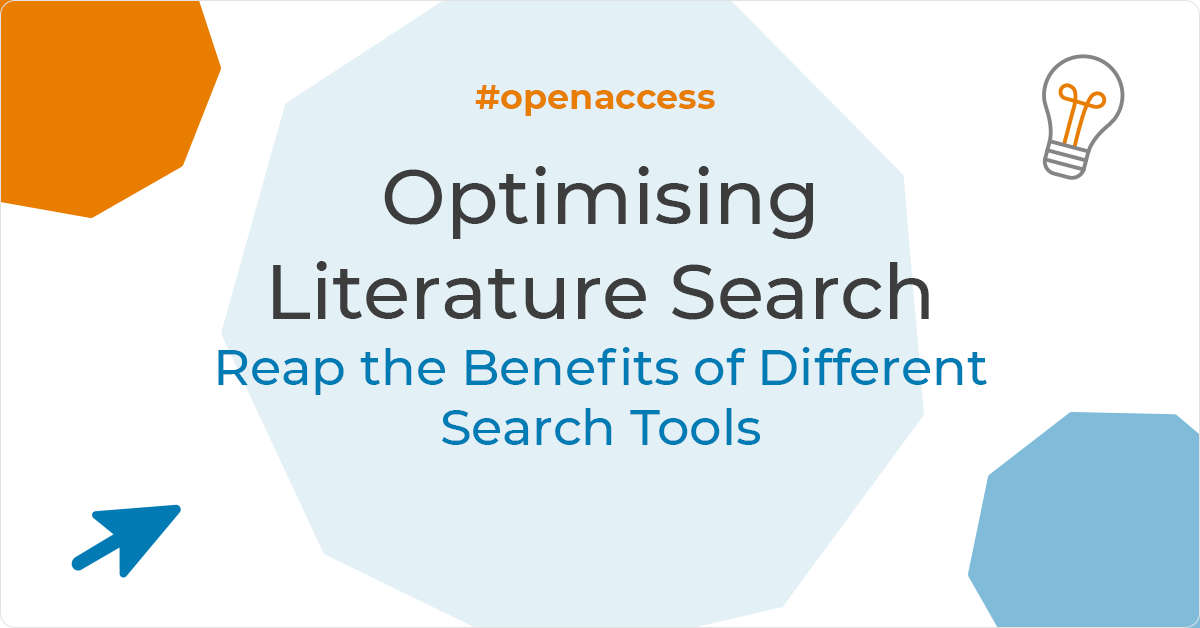Understanding the differences between the various types of search tools helps you find literature more effectively and more efficiently. That way you can also reap the benefits of Open Science in a targeted manner. For this purpose, we are presenting some common search tools for business studies and economics as well as the differences between them.
Publications contained in traditional or commercial databases are often hidden behind paywalls. However, Open Access expands access to research publications, and openly accessible working papers accelerate the availability of new research results. Reap these benefits by integrating search tools into your search strategy that also or exclusively search for Open Access publications. The blog post clarifies the differences, focusing on databases that are important for business studies and economics.
Google Scholar
Google Scholar is an academic search engine that contains scholarly articles (full texts). It contains Open Access full texts as well as publications that require a fee. Google Scholar is suitable to search for and in repositories. Usually, it leads to a large number of results. As it links the best freely accessible version of a result, it is the world’s largest Open Access search machine. But the big number of results also makes it difficult to gain an overview.
You should always keep in mind that Google Scholar is a commercial provider. It serves as a good starting point. But don’t forget to check the quality of its results. And it is also important to know how its ranking works: Google Scholar favours much cited articles in ranking. Because it takes time for publications to build up citations, you will usually see papers with many citations on the first few results pages and recent papers further down the list.
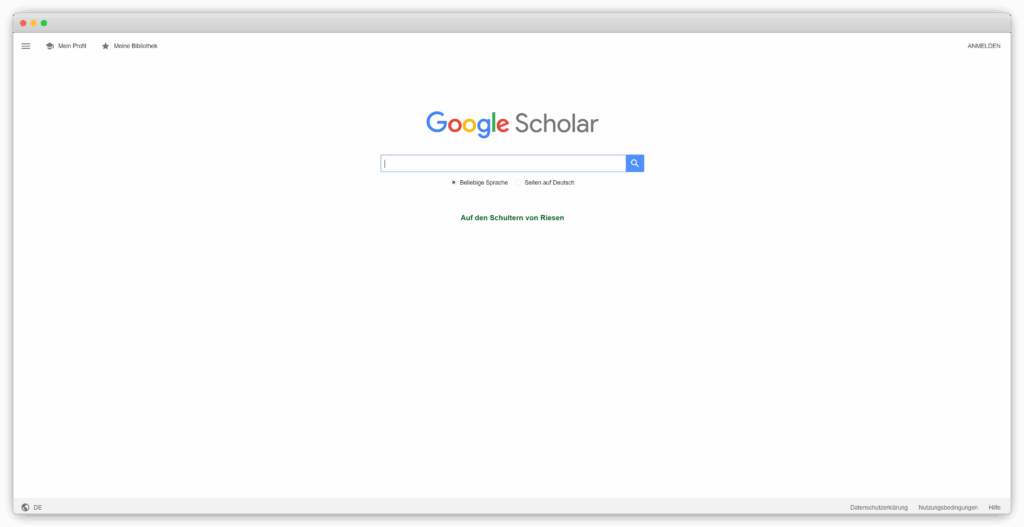
Library Catalogue
A library catalogue, for instance HOLLIS Harvard Library Catalogue, in contrast contains books, e-books and often also journal articles that are part of the library’s collection. These sources are all available on site in the corresponding library. In general, you can also use it via VPN for remote access. Usually, a library catalogue contains sources that cannot be found with search engines. And it can find sources across disciplines.
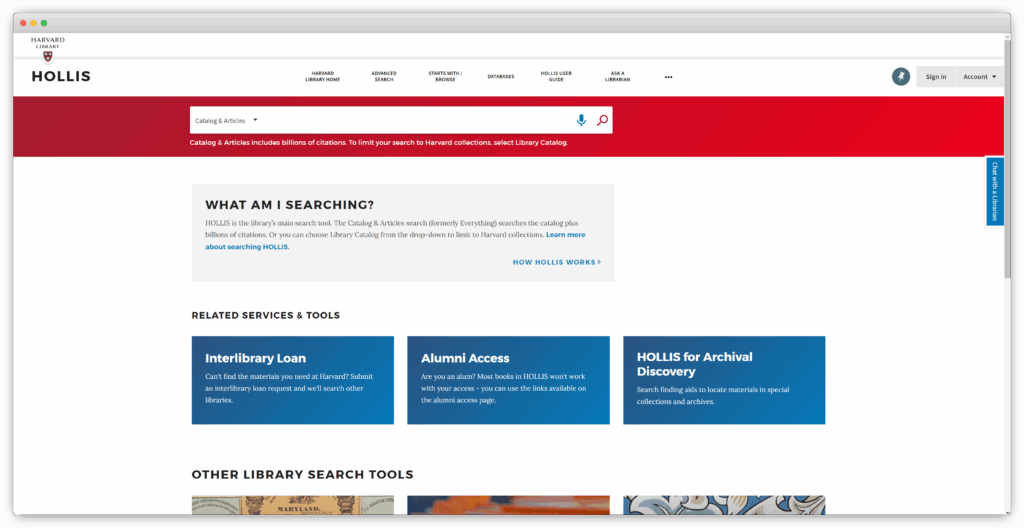
EconBiz
EconBiz (EconBiz in the Open Economics Guide) is a specialist portal for business studies and economics literature search in important German and international databases. It provides access to free full texts and publications licensed by libraries. Thus, you can use EconBiz to search for Open Access full texts. Where there is no free alternative yet, the portal also shows ways and access points to licensed literature.
For further information on finding Open Access literature in EconBiz also read this blog post containing four pro tips.
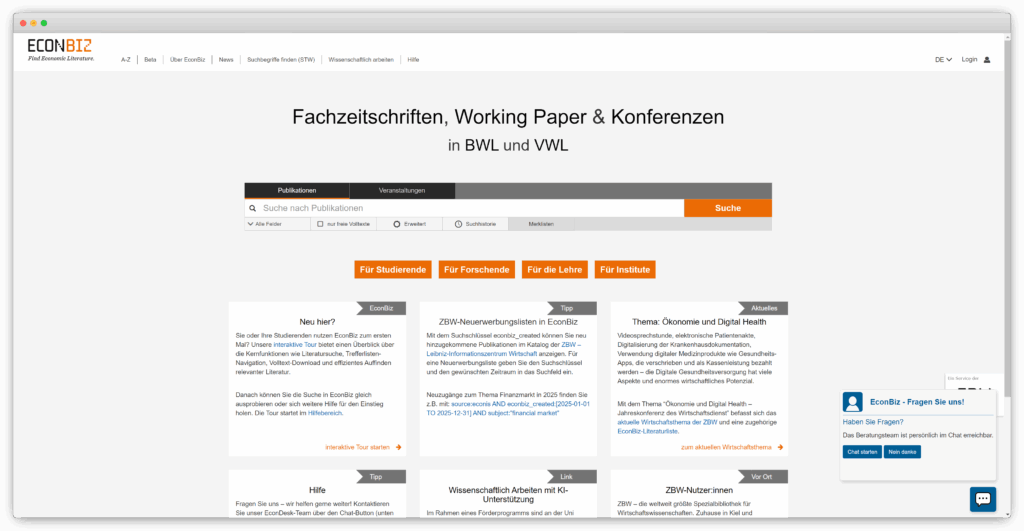
EBSCO Business Source
EBSCO Business Source is a commercial database accessible via paid licence. It contains full texts and references. With its focus on business topics, it is useful for searching articles and company information.
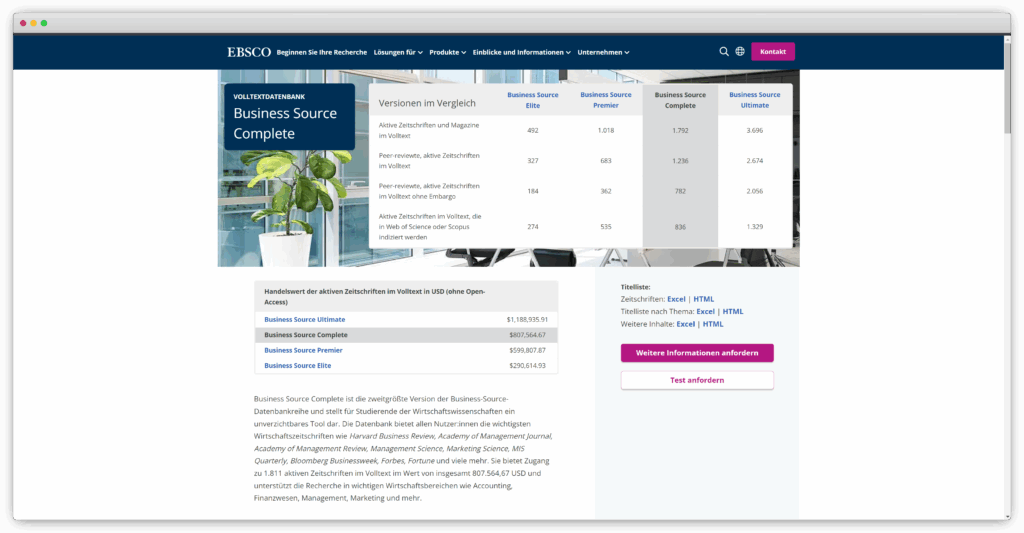
RePEc (via IDEAS)
IDEAS is a freely accessible comprehensive bibliographic database for economics. It is great if you are looking for working papers.
IDEAS is based on data from RePEc. Around half of the full-text publications listed there are accessible in Open Access.
Academic search engines, library catalogues and databases like EconBiz or RePEc all have their strengths and weaknesses. Therefore, you should use different search tools to find all relevant publications on a topic.
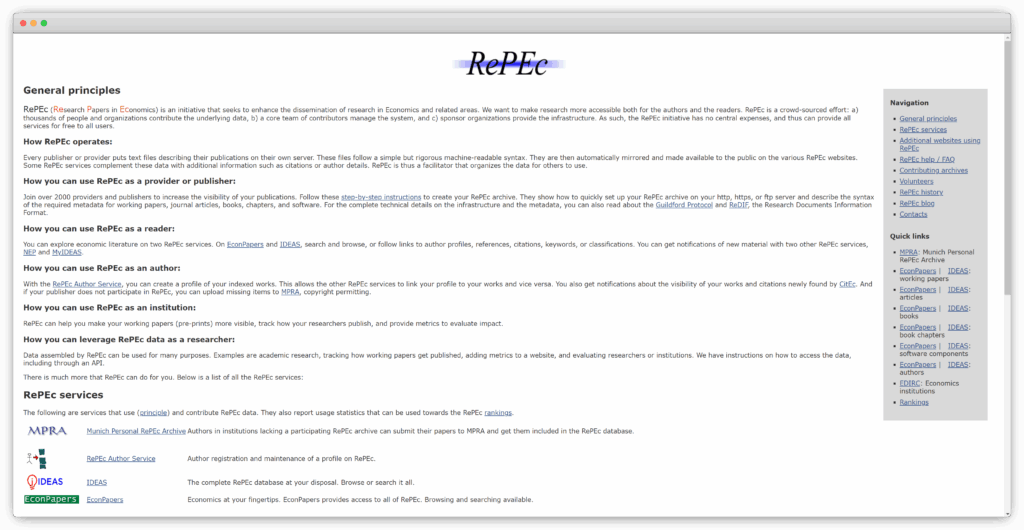
More Search Tools and Tips
There are more Open Access search engines, containing multidisciplinary content, like BASE, CORE or OpenAIRE. You can also find a selection of more tools for searching Open Access literature here and even more in the Open Science tool catalogue.
Tip: If you would like to know more about finding Open Access literature this entry is a good starting point.
